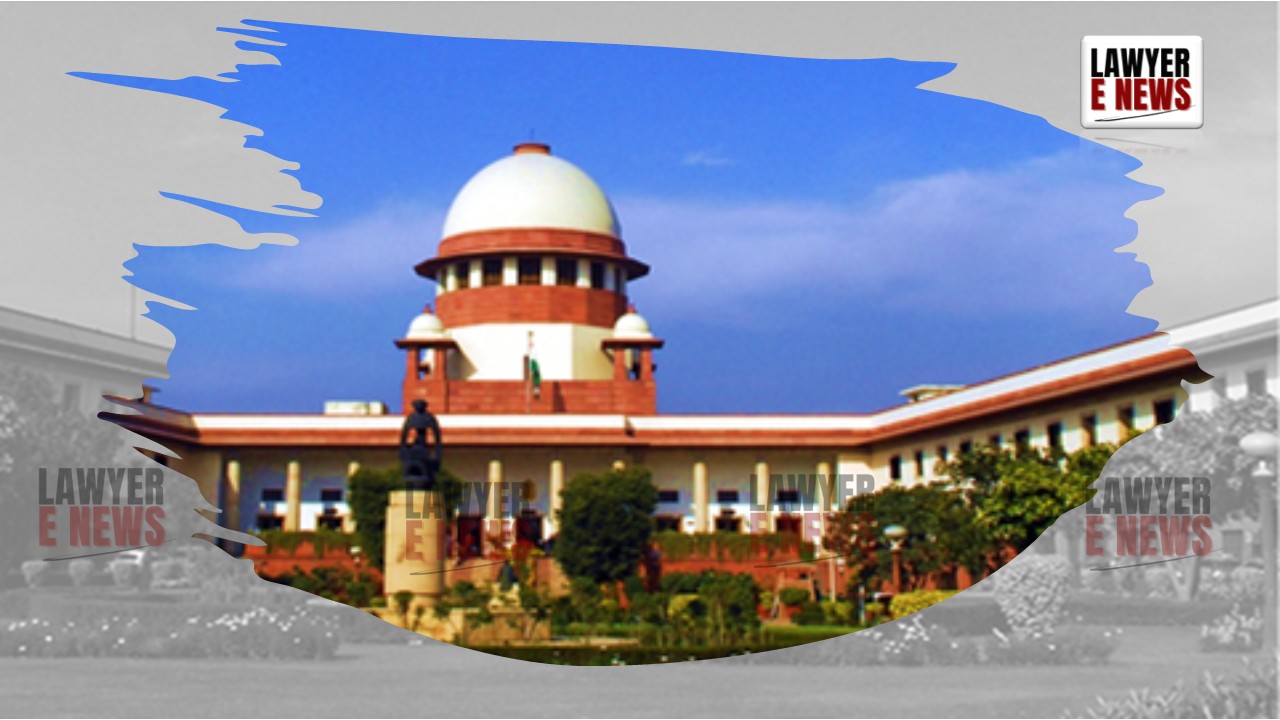-
by sayum
14 February 2026 2:22 PM



Supreme Court of India reinstated two corruption cases against Central Government employees. The judgment addressed the contentious issue of whether state consent under Section 6 of the Delhi Special Police Establishment Act, 1946 (DSPE Act) is required for the CBI to investigate offenses under a Central Act committed by Central Government employees. The Court held that such consent is not required, thereby setting a precedent for investigations under the Prevention of Corruption Act, 1988 (PC Act).
The Court also upheld the validity of pre-bifurcation notifications and circulars that continued to apply to the successor states of Andhra Pradesh and Telangana, ensuring no jurisdictional vacuum existed after the bifurcation of Andhra Pradesh in 2014. The appeals were allowed, and the trial against the accused was ordered to proceed.
FIRs Under Prevention of Corruption Act
The Central Bureau of Investigation (CBI) had registered two FIRs under Section 7 of the PC Act against Central Government employees:
1. FIR No. 10(A)/2017: Against A. Satish Kumar, a Superintendent in Central Excise, Nandyal (Kurnool), for allegedly demanding and accepting a bribe of ₹10,000 from a contractor for issuing a license surrender certificate.
2. FIR No. RC22(A)/2017-CBI/HYD: Against another Central Government employee, Challa Sreenivasulu, working as Accounts Assistant in the South Central Railway, Guntakal, for allegedly demanding a bribe of ₹15,000 for processing contract bills.
After completing the investigation, the CBI filed chargesheets before the Special CBI Court at Hyderabad. Following subsequent jurisdictional changes post-bifurcation of Andhra Pradesh, the cases were transferred to the Special CBI Court in Kurnool.
The accused challenged the FIRs and the subsequent proceedings in the Andhra Pradesh High Court, arguing lack of state consent under Section 6 of the DSPE Act and absence of notification designating the CBI Court as a Special Court under the PC Act. The High Court quashed the FIRs and proceedings, prompting the CBI to approach the Supreme Court.
State Consent Under DSPE Act for Central Government Employees
The key legal question was whether the CBI required state consent under Section 6 of the DSPE Act to investigate offenses under a Central Act (PC Act) committed by Central Government employees within the territorial limits of a state.
The Court ruled that:
“Consent under Section 6 of the DSPE Act is not required for the investigation of offenses under a Central Act committed by Central Government employees, irrespective of the location of the offense.”
The judgment referred to the precedents in Kanwal Tanuj v. State of Bihar (2020) and Fertico Marketing and Investment Pvt. Ltd. v. CBI (2020), which clarified that no state consent is needed for CBI investigations involving Central Government employees under Central Acts.
Jurisdiction of CBI Court Post-Bifurcation
The respondents argued that the notification designating the Special CBI Court in Hyderabad as a Special Court under the PC Act ceased to apply to the newly created Andhra Pradesh post-bifurcation in 2014. The Court, however, disagreed:
“All pre-bifurcation laws, including notifications, continued to operate in both successor states of Andhra Pradesh and Telangana unless specifically repealed or modified.”
The Court relied on a Circular Memo dated May 26, 2014, issued under the Andhra Pradesh Reorganisation Act, 2014, which clarified that all laws applicable to the undivided state of Andhra Pradesh as of June 1, 2014, would continue to apply to both successor states until altered.
The Supreme Court also held that G.O.M.S. No. 88 dated August 7, 2012, designating the Hyderabad CBI Court as a Special Court under the PC Act, remained valid and applicable to the Rayalaseema districts of Andhra Pradesh, including Kurnool and Anantapur, even after bifurcation.
Jurisdiction of CBI Over Central Government Employees
The Court emphasized that the accused were Central Government employees, and their alleged offenses fell squarely under a Central Act. Thus, the CBI was well within its rights to investigate the matter without seeking additional state consent.
Referring to Kanwal Tanuj and Fertico Marketing, the Court reiterated:
“If the offense is committed under a Central Act, the requirement of consent under Section 6 of the DSPE Act does not arise. This holds true even if the offense occurs within the territorial limits of a particular state.”
Validity of Special Court Notifications
The Court rejected the High Court’s conclusion that the absence of a fresh notification after bifurcation rendered the proceedings invalid:
“The designation of the CBI Court at Hyderabad as a Special Court under the PC Act remained valid post-bifurcation, and the subsequent transfer of cases to the Kurnool CBI Court was lawful and in accordance with the law.”
The Supreme Court quashed the High Court’s decision to annul the FIRs and proceedings. Key points from the ruling include:
1. General Consent Continued Post-Bifurcation: The pre-bifurcation general consent granted by the undivided Andhra Pradesh under Section 6 of the DSPE Act remained valid for the successor states unless repealed.
2. CBI’s Authority Over Central Government Employees: No consent was required to investigate Central Government employees under the PC Act, a Central statute.
3. Special Court Designation: Notifications designating the Hyderabad CBI Court as a Special Court remained effective post-bifurcation, and subsequent transfers to the Kurnool CBI Court were lawful.
4. Restoration of Cases: The Court ordered the restoration of the two cases to the Special CBI Court in Kurnool, directing the trial to proceed as per law.
The Supreme Court’s ruling in The State, Central Bureau of Investigation v. A. Satish Kumar & Ors. is a significant affirmation of the CBI’s authority to investigate offenses under Central Acts involving Central Government employees. It underscores that state consent is not a barrier for such investigations and clarifies the continuity of jurisdictional laws post-bifurcation.
Date of Decision: January 2, 2025
